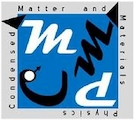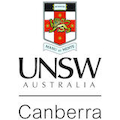

Travel
International Visitor Information
Air Travel
There are no direct flights to Canberra from overseas. Generally, overseas travelers coming to Canberra fly into an airport in Sydney, Melbourne or Brisbane and transfer to Canberra.
If you are flying to Australia, there are certain security measures in place at Australian airports that you should know about before arriving. Please visit the travelsecure website for information on restrictions, prohibited items, travellers with specific needs, airport security checks and more. This information will help you prepare for your journey.
Travelling to Australia from abroad? Then take a look at these handy hints
to make sure your stay runs smoothly.
Currency
Australian dollar
Banking
Banks are generally open from 9am-4pm Monday to Thursday, and 9am-5pm on Fridays. In some states, selected banking facilities are available on a Saturday morning.
Time zones
Australia has three time zones. Eastern Standard Time (which applies to New South Wales, Australian Capital Territory, Victoria, Tasmania and Queensland) is equal to Coordinated Universal Time plus 10 hours (UTC +10). Central Standard Time (which applies to South Australia and the Northern Territory) is equal to Coordinated Universal Time plus 9 ½ hours (UTC +9 ½). Western Standard Time (which applies to Western Australia) is equal to Coordinated Universal Time plus 8 hours (UTC +8).
Quarantine
Some food, plant material and animal products from overseas are not permitted in Australia. Some products may require treatment to make them safe, other items that pose pest and disease risks will be seized and destroyed by
the Australian Quarantine and Inspection Service (AQIS). Some products may be allowed in if accompanied by an import permit (issued by AQIS prior to arrival), or after treatment in Australia to make them safe (fees and charges apply). Visit the Australian Quarantine and Inspection Service website for more information: www.daff.gov.au/aqis.
Visas
Depending on the length of your stay you may need to obtain a visa to visit Australia. There are many types of visa depending on your situation, visit the Department of Immigration and Citizenship website for more information: www.immi.gov.au/visitors/.
All visitors should apply for a visa at least two months prior to their intended date of departure and four months prior for people with character of health concerns.
Please note, the Australian Government has introduced The Biometrics in Visa Processing Outside Australia Program (the program) that introduces the collection of biometrics into the overseas visa application process. More details on the program including countries and vis subclasses affected can be found at
www.immi.gov.au/allforms/biometrics/offshore/
Visa Applications
Under Australia's universal visa system, all visitors to Australia must have a valid visa to travel to and enter Australia (other than New Zealand passport holders who will normally be granted a Special category visa on arrival, provided they meet health and character requirements; and permanent residents of Norfolk Island who may be granted a permanent resident of Norfolk Island visa on arrival. For more information, see the fact sheet at
www.immi.gov.au/media/fact-sheets/17nz.htm
There are many visa options available to people wishing to visit Australia. The appropriate visa option will depend, amongst other things, on the person's purpose for visiting Australia.
Visa for Specific Purposes
Please see below the information for guidance on the visa options that may be most suitable for your event participants. NB these are the visa option available at the moment, but the Department reserves the right to change regulations.
Note: for the purposes of attending the above event, the participants may wish to consider applying for one of the following visas, based on their role at the event.
eVisitor visa, ETA or Visitor (subclass 600 visa in the business visitor stream - should be used by conference participants, unless they are being paid by an organiser in Australia for their participation or they are selling goods or services directly to the general public.
Temporary Work (short stay activity) (Subclass 400) visa - should be used by those who are being paid by an organisation in Australia for their participation in a conference and those who are selling their goods or services directly to the general public.
NB: IECN assistance will not guarantee a visa grant. Visa applicants must demonstrate that they meet all the legislative requirements for an Australian visa.
For additional background relating to:
*visas for people to come to Australia for tourism or business purposes, please see:
www.immi.gov.au/visitors/tourist/visa-options.htm
*visas for people to come to Australia to undertake short-term, highly specialised work or to participate in non-ongoing cultural or social activities at the invitation of an Australian organisation, please see:
www.immi.gov.au/visas/pages/400.aspx
Health and Character Requirements
All visa applicants will be required to meeting certain character and health requirements as part of their visa application process. These requirements exist to uphold the safety and security of the Australian community. The following links provide further information on these requirements, see www.immi.gov.au/allforms/health-requirements/ and www.immi.gov.au/allforms/character-requirements/
Where to Lodge Paper-based Visa Applications
The Department has Australian Visa Offices located around the world that are responsible for specific countries, regions or economies. Use the attached link to find the responsible Australian Visa Office for each location, including details on how to lodge a paper-based visa application: .immi.gov.au/contacts/overseas/
Service Delivery Partners (SDPs) that operate Australian Visa Application Centres (AVACs) and Australian Biometric Collection Centres (ABCCs) are also located in various countries. These centres provide visa application lodgement or biometric collection services on behalf of the department. A map locator with details for each SDP is available at wwwimmi.gov.au/contacts/overseas/. Please note that visa applicants who lodge their applications through an Australian Visa Application Centre my need to pay a fee to use this service. This service fee is separate from the visa application charge.
Contacting Australia
If you're calling Australia from overseas, firstly, dial the country code prefix (61) then the area code without the first zero (02 for Sydney would become 2), then dial the phone number. For mobile numbers, dial 61, ignore the zero, then the remainder of the phone number. For more information about travelleing to Australia, visit: www.australia.com




